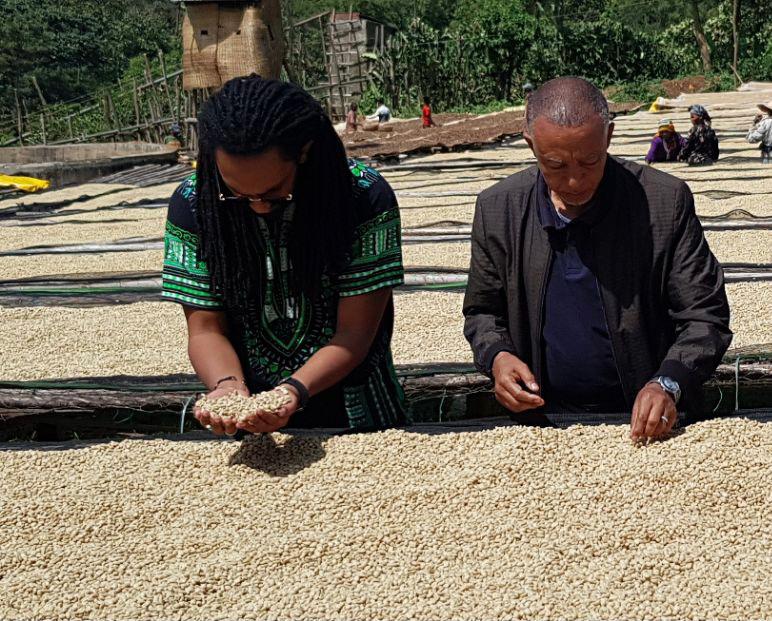Hussein Mohammed
(Cabey Washing Station)
(Cabey Washing Station)

Details
Region: Southern Nations, Nationalities, and People’s Region (SNNPR)
Zone: Gedeo
Woreda: Dilazuria
Kebele: Gola
Altitude: 1,800 – 2,200 meters above sea level
Owner: Cabey
Process: Washed
Varietal: Ethiopian Heirloom
Screen Size: 14+
Bag Weight: 60kg
Grain Pro: of course!
Cupping Notes
Aroma: Fruity, floral and hints of ginger
Flavor: Sweet ginger and chocolate
Body: Medium
Acidity: Mild
Certifications: N/A
In 2017 the Ethiopian government passed a new proclamation which allowed private washing station owners (the primary processors of coffee cherries into parchment) to sell their parchment directly to interational buyers instead of being forced to sell through Ethiopian Commodity Exchange (ECX).
Mohammed Seid immediately saw an opportunity to establish a traceable Cabey coffee and sought out to purchase a washing station. “I knew the specialty coffee market was in it’s early stages in Ethiopia in regards to traceability, but given the growing number of international consumers demanding this information, the government finally decided to act” Mohammed explains, “the quality of Ethiopian coffee is like none other, and now we can work directly with international buyers who appreciate & help us improve on what we do.”
Wanting to only sell the best, traceable coffee, he knew he needed to be in Gedeo Zone – home of the famous Yirgacheffe. Anyone who knows specialty coffee knows of Yirgacheffe as this type of coffee offers some of the finest and most developed flavour profiles Ethiopia has to offer.
The cherries are collected between October until the beginning of December and immediately brought to the washing station. We usually send out a truck once a week during the peak harvest season to pickup cherries from locals who would otherwise have to travel far distances to reach our mill.
Since we currently only produce washed coffees, the cherries are inspected and sorted before being placed into fermentation tanks. Here they sit for 36 hours while the mucileage (cherry skin) is broken down by natural enzymes, before easily being rinsed away. The beans are then placed on elevated drying beds where they will dry for 9-15 days. Yellow tarps are used to cover the bean from periods of strong sunlight and or rain.